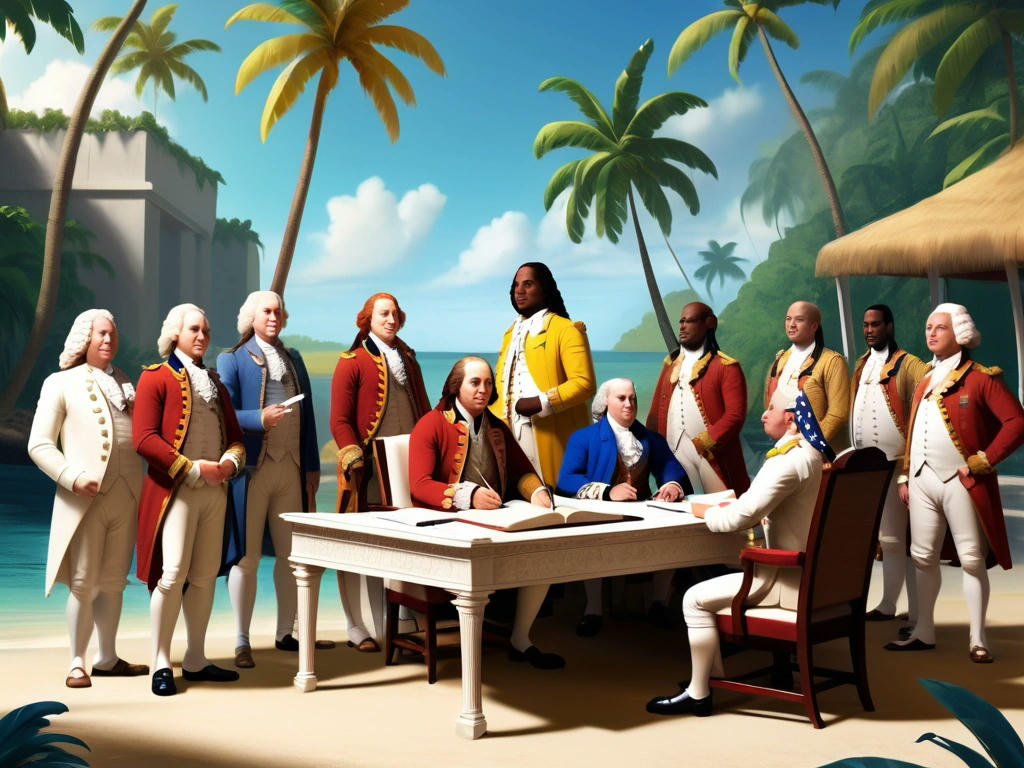In the grand theater of global independence, where revolutions are often painted with the dramatic strokes of blood and valor, there exists a peculiar narrative that defies the conventional script. While some nations have chosen the path of tumultuous upheaval, others have taken a more, shall we say, leisurely stroll towards freedom.
Take, for instance, the tale of a certain South American country whose independence saga reads more like a casual resignation letter than a revolutionary manifesto. While our northern neighbors, the "gringos," may wax poetic about the "tree of liberty" needing a good watering with the blood of patriots and tyrants, down here, we prefer a more laid-back approach.
Picture this: a king, perhaps a bit weary from the tropical heat, decides that ruling a distant colony is just too much hassle. With a nonchalant wave of his hand, he declares, "You're free from now on." No dramatic battles, no fiery speeches—just a royal shrug and a newfound independence. It's as if the king simply decided that ruling a colony was as tedious as assembling flat-pack furniture.
Fast forward a few decades, and one of his descendants, perhaps inspired by a particularly enlightening siesta, decides that democracy might be a novel idea. And just like that, democracy arrives, not with a bang, but with a gentle nod of approval. It's almost as if the nation collectively decided that the drama of revolution was best left to the theater.
Of course, no story is complete without a twist. Enter the military dictatorship, a brief interlude in this otherwise tranquil narrative. But even this chapter seems to lack the usual intensity. The military, after dealing with a few pesky dissidents, apparently grew bored and decided that democracy wasn't such a bad idea after all. Perhaps they realized that running a country was more work than they had bargained for, or maybe they just missed the comforts of civilian life.
And so, the nation returned to democracy, not with the fanfare of a triumphant return, but with the quiet acceptance of a people who had seen it all before. It's a story that defies the usual tropes of revolution and independence, a tale where the pen truly is mightier than the sword—or at least, more convenient.
In the end, while some may see this as a lack of passion or fervor, perhaps it's simply a testament to the power of pragmatism. After all, why fight when you can simply ask nicely?

